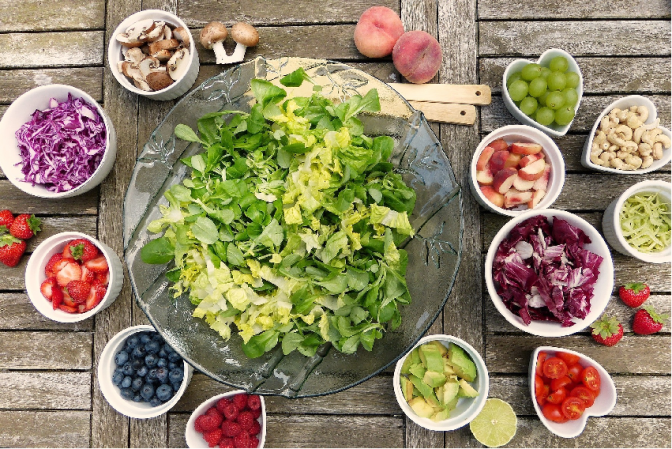In this article from best online casinos usa, we will be listing out five most popular religion and their sacred food.
Christianity
In early Christianity, meat and dairy products were avoided during certain times of the year, but today, the most well-known and holiest dietary practice is the consumption of bread and wine—sometimes replaced by grape juice—during Holy Communion in the Protestant tradition or the Eucharist, in the Catholic tradition. The symbolism of bread and wine began in Christ’s time, when these were very common foods. Jesus, during the Last Supper, took the bread and “broke it and said, ‘This is My body, which is for you; do this in remembrance of Me.’ In the same way, after supper, He took the cup, saying, ‘This cup is the new covenant in My blood; do this as often as you drink it, in remembrance of Me.’”
Judaism
In Judaism, foods are divided into two groups—kosher, which is allowed, and treif, which is forbidden. According to the Tora, only animals which chew and have cloven hooves are permitted for eating, and four animals are expressly forbidden as food—the hare, camel, hyrax, and pig. Also forbidden are insects and reptiles.
In addition to this, even kosher animals must be slaughtered using a specific process for the meat to be considered acceptable for use by the Jewish people. Because the Torah prohibits the consumption of blood, all blood must be removed from the meat through soaking, salting, or broiling before consumption. Because of the difficulty in completely removing blood from it, the liver is not eaten. Meat and dairy products may not be eaten together, and must be kept separate. Interestingly, utensils, plates, bowls, and even sinks and dishwashers can inherit a “meat” or “dairy” status through prolonged contact with either type of food. For example, if a bowl was used to contain milk, and then that bowl was placed in the dishwasher, that dishwasher rack would inherit the “milk” status. It could not, then, be used to clean a dish that had been exposed to meat. The two, and anything that touches them, must always be kept separate under Jewish law.
Islam
Similarly, Islam also has lawful and unlawful foods, which are designated, respectively, as halal and haram.
The Quran forbids meats from animals which die of natural causes, the blood and meat of pigs, and animals that have been dedicated to idols, or to any deity other than Allah. All meat must be properly prepared in order for it to be halal. The animal must not suffer, and must not see the blade used in the process. It must also be slaughtered while speaking the name of Allah. All intoxicating drink is prohibited under Islamic dietary law. Despite these regulations, Muslims are permitted to eat any food in times of necessity, such as if they are starving. This is called the “law of necessity”. In this way, drinks like wine and foods such as pork could be eaten in order to survive, courtesy of casino en ligne argent reel.
Hinduism
Diet in Hinduism is not as strictly regulated what we’ve seen in the Jewish or Islamic traditions, but there are a number of fascinating practices. No food is forbidden in ancient Hindu texts, but non-violence against all life is recommended. The oldest Hindu text, the Rig Veda, is often interpreted as denouncing the consumption of meat. Because of this, many Hindus prefer a vegetarian or vegan diet, and methods of food preparation that are not harmful to animals or to the environment. Those Hindus who do consume meat prefer it slaughtered in the Jhatka method, that is, killed instantly in a single strike rather than being left to suffer.
Particularly important to the Hindu tradition is a food called ghee—a type of clarified butter. In Hindu culture, cows are sacred, and butter is the only animal fat that many Hindus will consume. Ghee is used in religious rituals, burned in sacred lamps. In Hindu mythology, Prajápati, Lord of Creatures, created ghee by rubbing his hands together, pouring it into fire to create his progeny. When the Vedic ritual of pouring ghee into fire is performed, it is a reenactment of creation.
Taoism
Taoism’s 173 million worshippers, is a pantheistic belief system that takes it name from the word “Tao,” which means “the way” in Chinese. Taoism, which is not defined by any specific rituals or social order, aims to guide people in the proper way to live, and one of its components includes practices for achieving longevity. These practices include a healthy diet, which often takes the form of vegetarianism. Although the religion has no strict dietary laws, Taoists are encouraged to cause no harm to sentient life, including animals. In those rare cases of Taoists who do eat meat, it will not be consumed from sources which do not treat their animals humanely. Otherwise, Taoism simply encourages its adherents to find what foods are healthiest for them, and to pay attention to the changing needs of their bodies. Moderation, nutrition, and balance are the keys to longevity and health.
